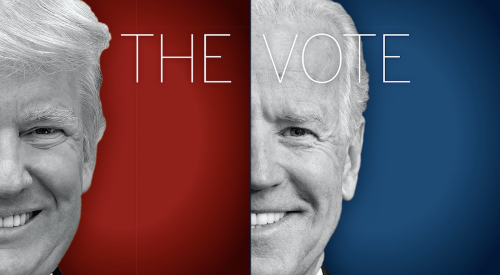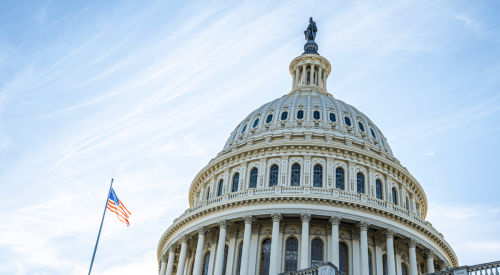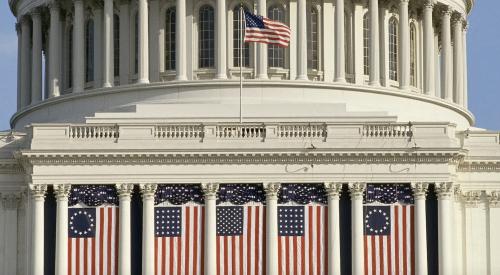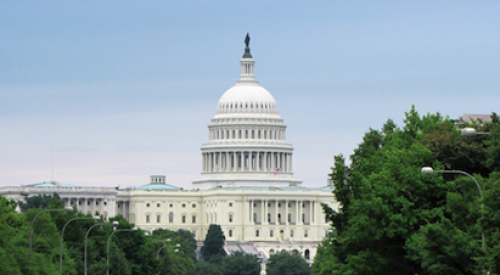|
Builders like Hugh Morton have a keen eye on the new Democratic-dominated Congress because they hold the cards for his future workforce.
The plight of his company, Peachtree Homes in Atlanta, is similar to that of other builders who rely on immigrant labor, especially in the Sunbelt.
Many in the construction industry anticipate Congress' shift after a long GOP reign that might bring housing issues to the forefront and conclude others — such as immigration — that have been deliberated but languished. But Democrats will have to find middle ground with any legislation or risk a presidential veto.
New initiatives will likely have to move quickly before the 2008 election cycle kicks in and promises of bipartisanship go by the wayside. Look for intense debate and possibly action on these significant housing industry issues.
ImmigrationThis emotionally charged issue came to the forefront in 2006 in the House and Senate and affects the housing industry's labor force. The National Association of Home Builders estimates more than 20 percent of the residential construction workforce is foreign-born.
Congress' move from hard-lined anti-immigration reform has NAHB CEO Jerry Howard hopeful that several provisions will be part of comprehensive reform that will help builders retain their workers.
Paramount is a guest worker program. The legislation's main goal would be to allow many illegal immigrants to apply for temporary work visas and start a path to citizenship, depending on how long they've been here.
"We would be very happy to see this happen and we are much more optimistic today than we were a month ago," Howard says.
Howard says NAHB will monitor legislation that places responsibility on small businesses for hiring illegal immigrants — even if workers' documentation is checked. Some past proposals would have made the builder completely liable.
The Minimum WageAfter efforts to raise the minimum wage stalled in the Republican-controlled Congress, as of this writing Democratic leadership indicate it will fast-track the issue. The proposal calls for a phased-in increase of the federal minimum wage from $5.15 an hour to $7.25 an hour, a move that seems inevitable because President Bush has supported it in the past.
Organized labor and other supporters say it would help the working poor. Business groups and other opponents counter it could lead to higher prices for goods and services or force companies to cut jobs to pay for the wage boost.
Howard notes that most of the housing industry pays more than minimum wage now, so many companies would not be directly impacted. However, he adds that NAHB is concerned because the increase puts pressure on wages.
Green Building and MaterialsExpect Democrats to zealously pursue regulation and butt heads with the home building industry when it comes to environmental regulation and finding alternative materials.
Many federal statutes have ramifications for local land use such as wetlands preservation, clean water, endangered species and storm water management, among others.
Green building is not on Congress' immediate radar screen, but NAHB continues to watch it to preserve discretion for building practices in local markets.
Affordable HousingTraditionally, Democrats have seen a larger role for the federal government to provide affordable housing, so look to the new Congress to be more aggressive. Financial Services Committee Chairman Rep. Barney Frank of Massachusetts has named this his top priority.
Options are under review that would put more capital into low- and moderate-income housing or increase eligibility for assistance programs. Possibilities include expanding the Low Income Housing Tax Credit (LIHTC) program and making private-mortgage insurance payments tax-deductible, which would enable homeowners to afford more. Also on Frank's agenda is addressing predatory lending at the federal level to enable more homeownership, particularly for black or Hispanic buyers.
Despite Frank's goals, Kris Cook, executive director of the National Affordable Housing Management Association, which represents managers and owners of multi-family housing in government programs, is not optimistic that new construction is coming anytime soon. For that to happen, domestic issues and funds need to be brought to the helm of the legislative agenda instead of Iraq, she adds. Instead, she believes lawmakers will address current housing stock so it does not deteriorate.
"Preservation is the pragmatic short-term approach," Cook says.
LumberFollowing last year's lumber agreement — a 7-year accord that creates a system of export taxes and quotas on Canadian lumber — between the United States and Canada, NAHB is looking for alternative sources of lumber and wants Congressional support.
NAHB, which fought the accord because it says it would drive up U.S. housing costs, believes it will disrupt the supply and increase prices of Canadian lumber, a critical source of past U.S. home building. A Democratic Congress is unlikely to expand the U.S. harvest of timber, and Howard anticipates lumber supply will be one of the upcoming issues the industry will have to fight for the hardest.
NAHB is in talks with Swedish and Russian lumber producers to increase their supplies to the U.S. and identify any policy barriers blocking a hike in exports to the U.S.
GSE reformAlso among the priorities of Frank and Sen. Chris Dodd, a Connecticut Democrat, is reform of the government-sponsored enterprises, namely Fannie Mae, Freddie Mac and the Federal Home Loan Banks. Proposals that would reform their regulatory structure have been put forth, but the call for this has become more urgent following GSE accounting and management scandals in recent years.
Such enterprises keep money circulating in the mortgage market, but critics say they have grown too big with inadequate oversight and need to put more emphasis on helping low- and moderate-income borrowers. Dodd and Frank, whose committees will tackle GSE legislation, want a solution to keep them stable over the next few decades. Both men favor a past House bill version of GSE reform that would not cap the amount of mortgage-backed securities in each GSE's portfolio and include an affordable housing fund.
|












